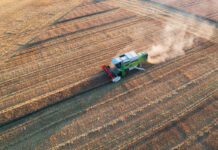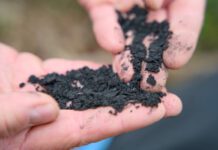
Researchers have discovered a way to transform a significant waste output from soy biodiesel plants into a valuable resource. The team behind it has developed a process to convert matter organic non-glycerol (MONG), a byproduct of biodiesel production, into copolymers suitable for 3D printing filaments.
The global demand for renewable energy sources has led to an increase in biodiesel production, resulting in a significant amount of waste byproducts such as MONG. Traditionally, MONG has been landfilled, posing environmental challenges and economic inefficiencies. The study presents a two-fold solution: a method to stabilize MONG for use in 3D printing and a reduction in the synthetic polymer content of natural fibre composites (NFC).
The researchers characterized soy MONG and evaluated its potential as a copolymer to produce 3D printing filaments. They focused on improving the thermal stability of MONG through two pretreatments: acid treatment and a combination of acid and peroxide. The latter resulted in a stabilized paste with decreased soap content, increased crystallinity, and the formation of low molecular weight small chain fatty acids, making it an ideal candidate for copolymerization with thermoplastic polymers.
The study’s findings indicate that acid and acid + peroxide treatments effectively split soap, reduce water solubility, and increase glycerol content in MONG. The treatments also facilitated the oxidation of fatty acids and the formation of small chain fatty acids, which are more suitable for 3D printing applications. Notably, the acid + peroxide treatment led to an increase in formic acid and oxirane concentration, suggesting successful epoxidation, a key factor for improving the thermal stability of MONG.
The researchers also conducted a comprehensive analysis of the MONG’s physicochemical properties, fatty acid profile, and thermal stability. The results were promising, showing that treated MONG could be a viable alternative to synthetic polymers in NFC for 3D printing. The study concludes that the utilization of MONG in 3D printing not only adds value to a biodiesel waste product but also contributes to the development of sustainable and carbon-neutral composites.







